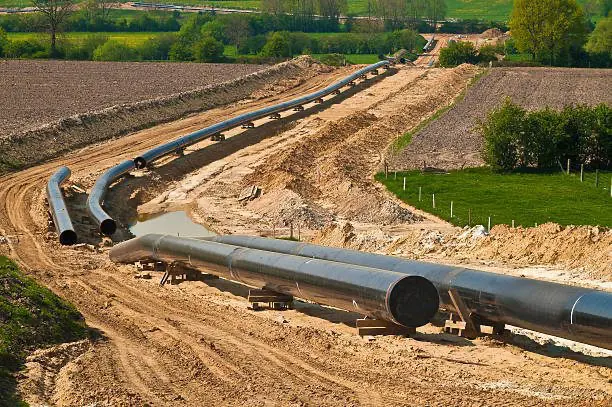
In the State of Texas, intrastate pipeline operators are governed by many different laws and regulations, including those promulgated by the Texas Railroad Commission (“RRC”). For example, to operate in Texas, a pipeline operator is required to submit a T-4 Permit to Operate, which is specifically a permit to operate a pipeline. The T-4 form does not concern the construction or acquisition of pipeline right-of-way via eminent domain—only the operation of existing pipeline.
Notwithstanding, in Texas, all pipelines, whether common carrier, gas utility, or private line, must have a T-4 Permit to Operate, with two exceptions: (1) pipelines that never leave the production lease; and (2) distribution lines that are part of a gas distribution system or a master meter system. 16 Tex. Admin. Code § 3.70(a).
Additionally, pipelines and their operators are divided into two groups. Group A and Group B. Group A includes transmission and gathering pipelines that are required by the RRC rules to have a valid T-4 permit to operate and are subject to the regulations in 49 CFR §§ 192 and 195. 16 Tex. Admin. Code § 3.70(i)(1)(A). Group A includes natural gas transmission and storage pipelines, natural gas gathering pipelines, hazardous liquids transmission and storage pipelines, and hazardous liquids gathering pipelines. Id. Group B includes pipelines that are required by RRC rules to have a valid T-4 permit to operate but are not subject to the regulations in in 49 CFR §§ 192 and 195. 16 Tex. Admin. Code § 3.70(i)(1)(B).
Under the federal regulations that are incorporated by Texas law, operators of certain onshore gathering lines are subject to several minimum safety requirements. Among them is the crucial requirement to conduct leakage surveys on transmission lines using leak-detection equipment, and if a hazardous leak is detected, the operator must promptly repair it. 49 CFR §§ 192.9 (d)(8); (e)(1)(vii); (e)(2).
The operator’s obligations under the law hang heavy; the operator cannot meaningfully assign its responsibilities under the law. “An operator may make arrangements with another person for the performance of any action required by this part. However, the operator is not thereby relieved from the responsibility for compliance with any requirement of this part.” 49 CFR § 195.10 (emphasis added).
These are among a host of obligations that an operator owes to its contractors and employees that work on its pipelines in Texas. When it comes to litigating against oil and gas companies, you need seasoned attorneys who have specialized knowledge and experience with litigating technical matters. If you have been injured or someone you know has been injured or killed as the result of the negligence of a pipeline or natural gas operator, contact an attorney at Abraham, Watkins, Nichols, Agosto, Aziz & Stogner at by calling 713-222-7211 or 1-800-870-9584 for a free legal consultation.
